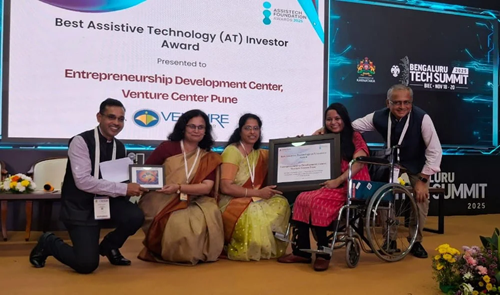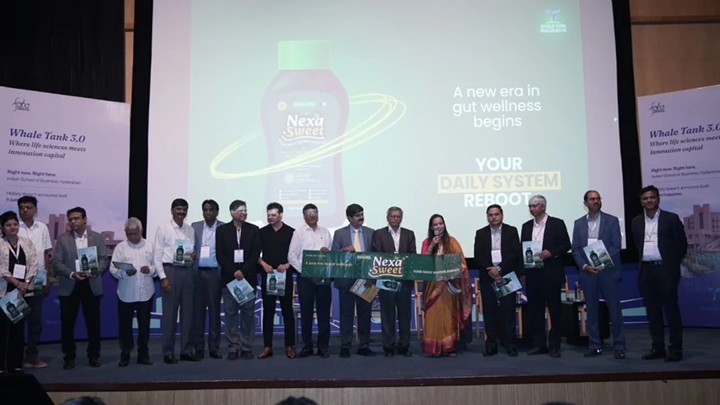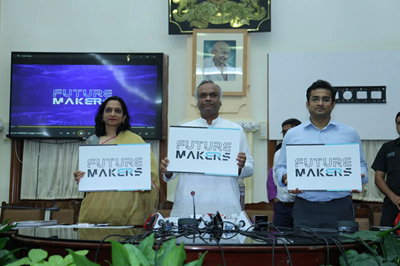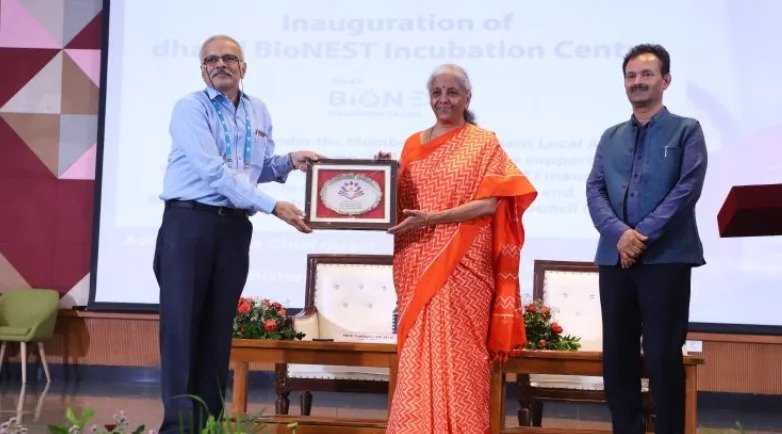We plan to establish a CoE in medtech and launch a bio-innovation acceleration programme in 2025
Karnataka State Cabinet has recently approved funding allocations of over Rs 350 crore for technology and innovation development across the state, which includes seed funding for startups. Amidst this development, the Manipal-Government of Karnataka Bioincubator is charting an ambitious course for 2025, solidifying its role as a catalyst for innovation in biomanufacturing and medtech. With strategic expansions, pioneering initiatives, and a commitment to fostering a robust startup ecosystem, the incubator is well-positioned to drive impactful advancements in the life sciences sector. To gain deeper insights into this dynamic growth trajectory, BioSpectrum engaged in an exclusive conversation with Manesh Thomas, Chief Executive Officer, Manipal - Government of Karnataka Bioincubator.

What new initiatives are planned to attract and nurture more startups in the life sciences sector?
In 2024, the incubator onboarded 10 new startups and 38 existing startups, for a total of 48 startups in the life sciences, biosciences, and healthcare sectors. To attract more startups, we conducted around 57 programmes to build partnerships with innovators from universities and R&D organisations, as well as startups and MSMEs.
The incubator is now focused on expanding and diversifying its incubation services and programmes to support innovators and startups. Plans include the augmentation of Bioincubator facilities with an additional 10,000 sq ft of space. A Clinical Validation Hub will be launched specifically for medtech startups at the bioincubator. The incubator also aims to establish a Centre of Excellence (CoE) in medtech with the support of the Government of Karnataka. Additionally, a GMP facility for small-scale bio-manufacturing will be set up. The incubator is also set to launch a bio-innovation acceleration programme for bio-medical startups and establish an advanced biomanufacturing facility for prototyping and scale-up. To further support the ecosystem, the incubator will host an International Bio-Innovation Summit to showcase opportunities and foster collaborations.
What role are startups expected to play in advancing biomanufacturing capabilities, and how is this anticipated to impact the overall industry?
In regulated sectors such as life sciences, biosciences, and healthcare, a significant challenge lies in bridging the gap between early-stage innovations, often culminating in patent filings, and their progression to biomanufacturing and market-ready products. Startups can play a crucial role in closing this gap by driving innovation in biomanufacturing. They can achieve this by developing cost-effective processes, scaling disruptive technologies, and addressing critical inefficiencies in production. These efforts are anticipated to enhance domestic manufacturing capacity, reduce reliance on imports, and position India as a leading global hub for biomanufacturing.
What are the incubator's plans for the year 2025 to foster entrepreneurship and innovation?
The incubator plans to expand wet lab and pilot-scale manufacturing facilities to accommodate diverse biotech startups, along with clean rooms for biomedical pilot productions. A certification programme for startups in the biomedical domain is also being planned. Additionally, a Social Bio-Innovation Initiative will be introduced to address rural and underserved healthcare challenges. The incubator aims to start a Biodesigning programme to address unmet medical needs and launch Entrepreneurial Training Modules focusing on regulatory pathways, IP management, and market strategy. Strengthening partnerships with global accelerators and research institutions will be a key focus to enhance startup support. Currently, the facility is DSIR SIRO recognised, and plans are underway to obtain ISO 9001 and NABL accreditation. Furthermore, the incubator plans to conduct 3 hackathons to scout innovations in the biomedical domains.
By bridging the gap between research and commercialisation, enhancing biomanufacturing capabilities, and nurturing entrepreneurial talent, it aims to accelerate India’s standing as a global leader in biotech innovation. As the incubator continues to push boundaries, its unwavering focus on infrastructure development, international collaborations, and social innovation will undoubtedly shape the future of healthcare and the bioeconomy, creating a lasting impact on the industry.
Vrushti Kothari
(vrushti.kothari@mmactiv.com)
Published on : 11th April, 2025
BIO-TECH
-
IHH Healthcare and Fortis launch ‘IHH Catalyst’ to strengthen India’s healthcare innovation ecosystem 11th February, 2026

-
Venture Center receives ATF 2025 Honour for supporting assistive technology innovations 24th November, 2025

-
Vaidam Health and Vanuatu's Ministry of Health ink MoU to strengthen cross-border healthcare access 20th November, 2025

-
Whale Tank Biocatalysts hosts Startup-Investor Meet WT 3.0 in Hyderabad 17th November, 2025

-
BTS 2025 to host India’s largest entrepreneurship platform “Future Makers Conclave” on Nov 20 06th November, 2025

-
Bessemer Venture Partners leads Rs 125 Cr Series A funding in fertility startup Pluro 04th November, 2025

-
dhaRti BioNEST Incubation Centre opens at Indian Institute of Technology (IIT) Dharwad 15th October, 2025





